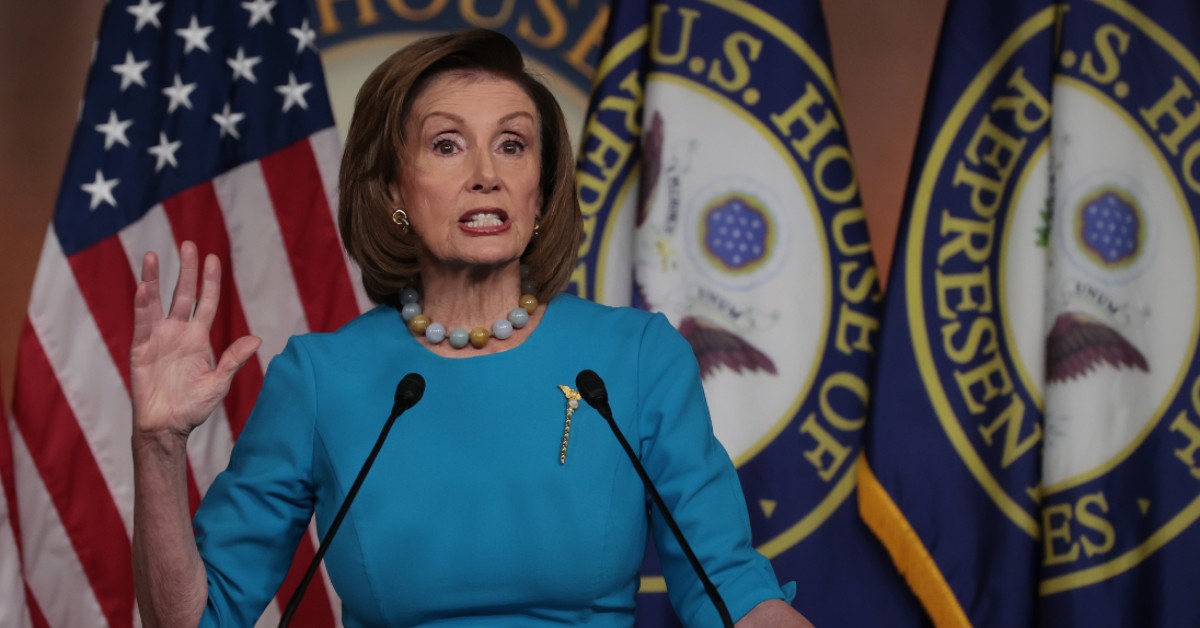OPINION: This article may contain commentary which reflects the author's opinion.
A Democratic lawmaker is taking steps to shore up congressional ethics with legislation aimed at barring lawmakers from trading in stocks after House Speaker Nancy Pelosi (D-Calif.) and her husband have raked in millions in recent years from Wall Street.
“According to the New York Post, Senator Ossoff is seeking a Republican co-sponsor to back his ethics legislation, which would bar members of Congress and their families from participating in the stock market for the duration of their Congressional terms,” Republic Brief reported Sunday.
“Among his own party members, Ossoff is likely to face strong opposition,” the outlet added, though he’s looking for a Republican co-sponsor.
Ossoff, 34, is one of just a handful of 535 serving lawmakers who has put his assets in a blind trust while in office.
Specifically, in recent weeks Pelosi herself has defended stock trades by members of Congress as a means of engaging in capitalism, which is ironic given that members of her own party have vehemently criticized the economic principle in favor of distinctly socialist or even Marxist economic principles.
The New York Post reported:
Nancy Pelosi is scrambling to quash bipartisan efforts to ban stock trading by Congressional lawmakers — even as she and her husband have raked in as much as $30 million from bets on the Big Tech firms Pelosi is responsible for regulating.
Late last month, the House Speaker disclosed that the Pelosis scooped up millions in bullish call options for stocks including Google, Salesforce, Micron Technology and Roblox. At the same, some insiders say she has slow-walked efforts to rein in Big Tech.
Days later, Pelosi brushed off worries over stock picking by lawmakers, claiming it was part of the “free-market economy” — comments that made Democratic insiders “blood boil,” people close to the speaker told The Post.
Not surprisingly, Pelosi’s view is not shared by the vast majority of Americans.
According to The Hill, a recent survey more than three-quarters, or 76 percent, of Americans believe lawmakers have insider knowledge of markets and thus an unfair advantage when it comes to picking stocks, and do not believe that they should be trading.
Commissioned by the group Convention of States Action, the majority of survey respondents said they believe lawmakers, who are supposed to be in a position to regulate Wall Street and corporations, have an “unfair advantage” in the stock market, while only 5 percent said they had no issues with lawmakers picking stocks.
“In an era of hyper-partisanship, voters in all parties agree that members of Congress should not be enriching themselves using ‘insider information’ while serving the people,” Mark Meckler, the group’s president, noted in a statement.
“This issue has received a lot of attention, and this data verifies the American people want this practice to end once and for all,” he added.
For her part, Pelosi also argued that lawmakers are required, under federal statutes, to disclose their transactions, same as all Americans, and they must abide by laws prohibiting insider trading. But Business Insider reported recently that at least 52 lawmakers failed to properly disclose their transactions in recent years, which added fuel to the call to bar them from trading at all while in office.
“Other surveys have shown similar support for cracking down on congressional stock trading. A November poll from the Campaign Legal Center found that 67 percent of voters support banning lawmakers from owning stock in specific companies,” The Hill noted further.
“The Convention of States Action poll found that 70 percent of Democrats, 78 percent of Republicans and nearly 80 percent of independents say members of Congress should not be allowed to trade stocks,” the outlet added.
If the proposals to bar lawmakers from trading stocks pass, Pelosi, in her 80s, is more likely to resign than give up making millions.
